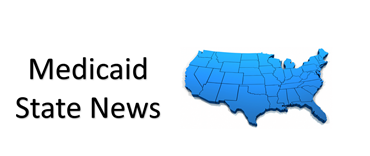MM Curator summary
A judge ruled that Planned Parenthood does not have legal standing in a case that claims women have a right to have Medicaid pay for their abortions.
The article below has been highlighted and summarized by our research team. It is provided here for member convenience as part of our Curator service.
A general view of the Pennsylvania Judicial Center, home to the Commonwealth Court, is seen Friday, Nov. 6, 2020, in Harrisburg, Pa.
Julio Cortez / AP Photo
(The Center Square) – A state judge dismissed a lawsuit on Friday that challenged the constitutionality of Pennsylvania’s restrictions on Medicaid coverage for abortions.
Commonwealth Court President Judge Mary Hannah Leavitt said the petitioners – including seven reproductive health care centers that provide 95% of abortions across the state – lack standing because she “can ascertain no reason, and none is alleged, why women enrolled in Medical Assistance cannot assert the constitutional claims raised in the petition for review on their own behalf.”
Attorneys for Allegheny Reproductive Health Center, Allentown Women’s Center, Delaware County Women’s Center, Philadelphia Women’s Center, Planned Parenthood Keystone, Planned Parenthood Southeastern Pennsylvania and Planned Parenthood of Western Pennsylvania filed the legal challenge against state officials at the Department of Human Services in January 2019 that claimed Medicaid’s restrictive policies for covering abortions violated their patients’ constitutional rights.
Pennsylvania’s Medicaid program only pays for an abortion if it is the result of rape or incest or if it endangers the mother’s life. The reproductive centers said this narrow view left many women to choose between the “essentials of life” or paying for abortion, with many “forced to carry pregnancies to term against their will.”
The centers also complained that the restrictive Medicaid parameters diverted time and resources away from its other programs to help women find ways to afford the procedure.
The state asked for a dismissal based on the centers’ lack of standing – a position with which Leavitt ultimately agreed.
“We conclude that Reproductive Health Centers do not have standing to vindicate the constitutional rights of all women on Medical Assistance, some of whom may not be their patients, and who may or may not agree with the claims asserted on their behalf in the petition for review,” Leavitt wrote. “The interests of Reproductive Health Centers are not inextricably bound up with the equal protection interests of all women enrolled in Medical Assistance.”
House Republican leaders released a joint statement Friday applauding the ruling as “consistent” with their position, as well as state and federal law, that conclude “public funds cannot fund abortions.”
“We applaud the Commonwealth Court for making the right decision and not taking an action to rewrite existing law,” the statement read. “This case was brought forward by Planned Parenthood and other abortion providers who want to make abortions more prevalent in our communities. This ruling in our favor is a victory for all pro-life Pennsylvanians.”
The Center Square reached out to Planned Parenthood Keystone but did not receive an immediate response. The reproductive centers could still choose to appeal the case to the state Supreme Court.

